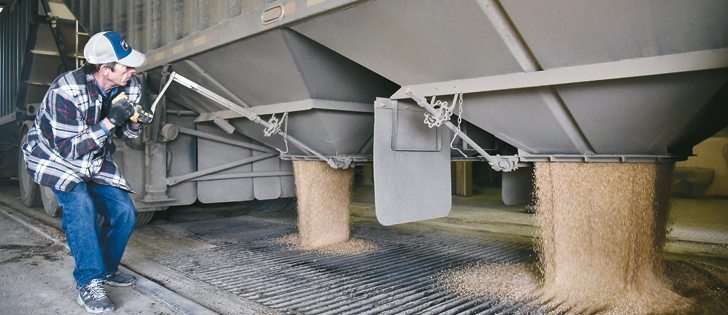Farmer-owned terminals are watching to see how the new Liberal government deals with the troublesome grain transportation file.
Kevin Hursh, executive director with the Inland Terminals Association of Canada, said Ottawa’s handling of the file generated considerable discussion at the association’s annual convention in Edmonton Nov. 2.
ITAC represents five independent farmer-owned grain terminals on the Prairies, including CMI at Naicam, Sask., Gardiner Dam Terminal at Strongfield, Sask., North West Terminal at Unity, South West Terminal at Gull Lake, Sask., and Providence Grain based at Fort Saskatchewan, Alta.
Read Also

U.S. government investigates high input costs
The USDA and DOJ are investigating high input costs, but nothing is happening in Canada.
“There’s going to be a different government installed and different government priorities, so I think the industry is trying to get a sense of direction from the new government,” Hursh said.
One of Ottawa’s first tasks on the grain file will involve a response to the Canada Transportation Act review process.
A federal review panel led by David Emerson is expected to submit its final report to Parliament before the end of the year.
Wade Sobkowich, executive director of the Western Grain Elevators Association, said rail service to the grain industry has improved considerably over the past few months.
“Everything’s been running fairly smoothly,” he said.
However, long-term solutions are still needed.
Sobkowich said reduced demand for rail service from the oil and gas industry has resulted in better service for grain.
It is also possible that railways are being “more attentive to grain this year, given the high level of attention that grain has received in the past couple of years,” he said.
Rail regulations and the concerns of western Canadian grain shippers were given thorough consideration during the review panel’s consultation process this summer.
Hursh said grain industry stakeholders will be watching to see if Ottawa takes substantive steps to improve service.
The grain industry would like to see regulatory changes that make enhanced service level agreements possible and allow shippers to negotiate more favourable service contracts.
On the other hand, railway officials have consistently promoted a less onerous regulatory environment and the removal of maximum revenue entitlements for grain.
The relationship between Ottawa and Canada’s major railway companies has been far from warm during the past few years.
The Conservative government’s decision to impose minimum weekly grain hauling quotas last year did not sit well with executives at Canadian National Railway and Canadian Pacific Railway.
Hursh said comments made during the federal election campaign suggest that a Liberal government would act on the CTA review panel’s recommendations.
“What they (the federal Liberals) have said so far about rail transportation and its importance is good,” Hursh said.
Comments made during the election campaign also suggest that a Liberal government would be prepared to conduct a full railway costing review.
If a costing review is in the cards, the timing would be critical, Hursh said.
“I think they’ve added some imperative on a costing review … but I think most of the industry is of the opinion that we should fix performance first.”
Ottawa will also need to make other key decisions.
Interim funding mechanisms that were put in place by the former Conservatives government to support the grain industry are due to expire within the next 18 months.
As well, temporary producer checkoffs that support programming at the Western Grains Re-search Foundation, the Canadian Malting Barley Technical Centre and the Canadian International Grains Institute are due to expire in 2017.
It is likely that producers will expect industry players, most notably major grain handling companies, to share that expense.
Federal funding that makes it easier for the Ag Transport Coalition and the federal Grain Monitoring Program to collect grain transportation data is also due to expire in 2017.
“I would think (those programs) would be deemed to be essential,” Hursh said.
Contact brian.cross@producer.com
















